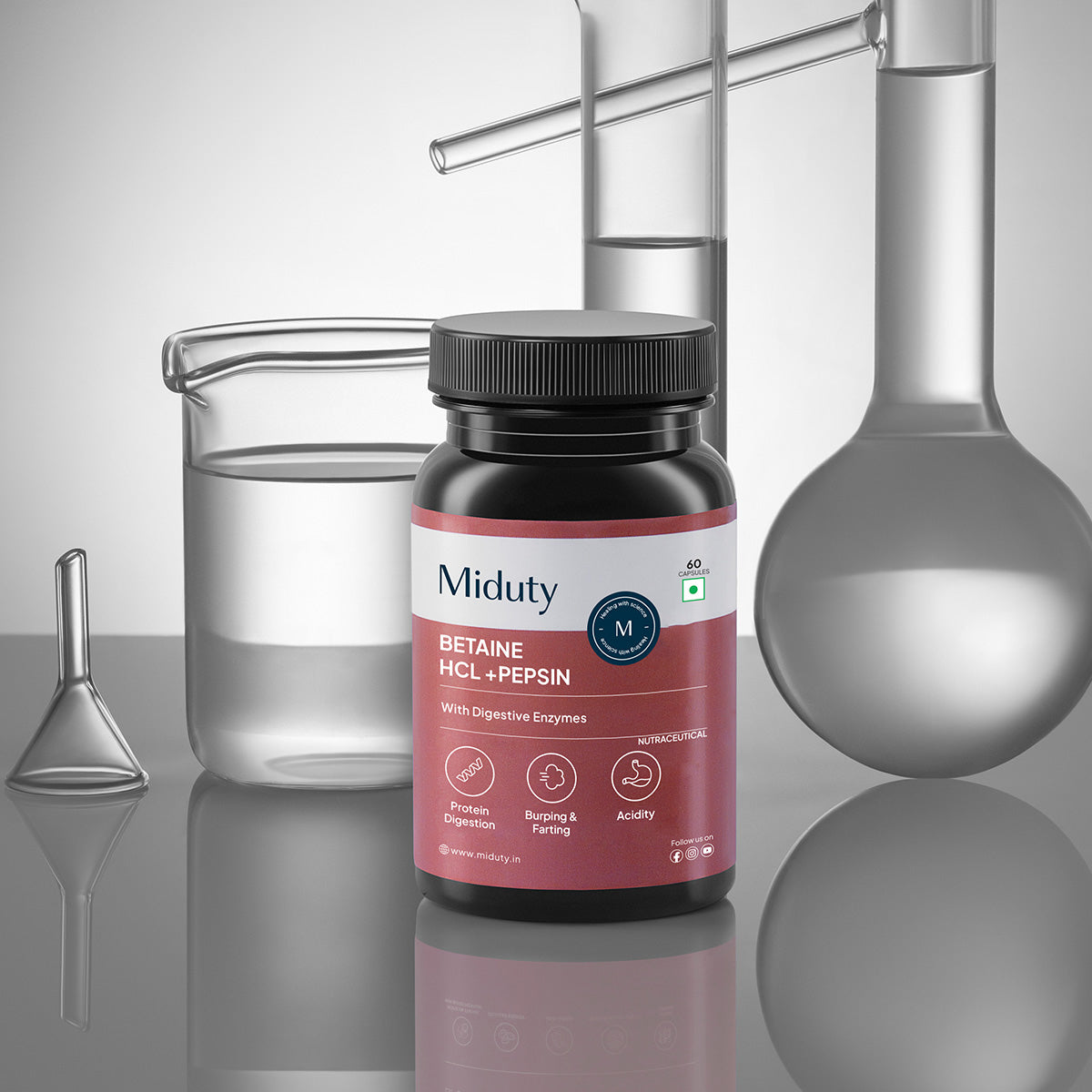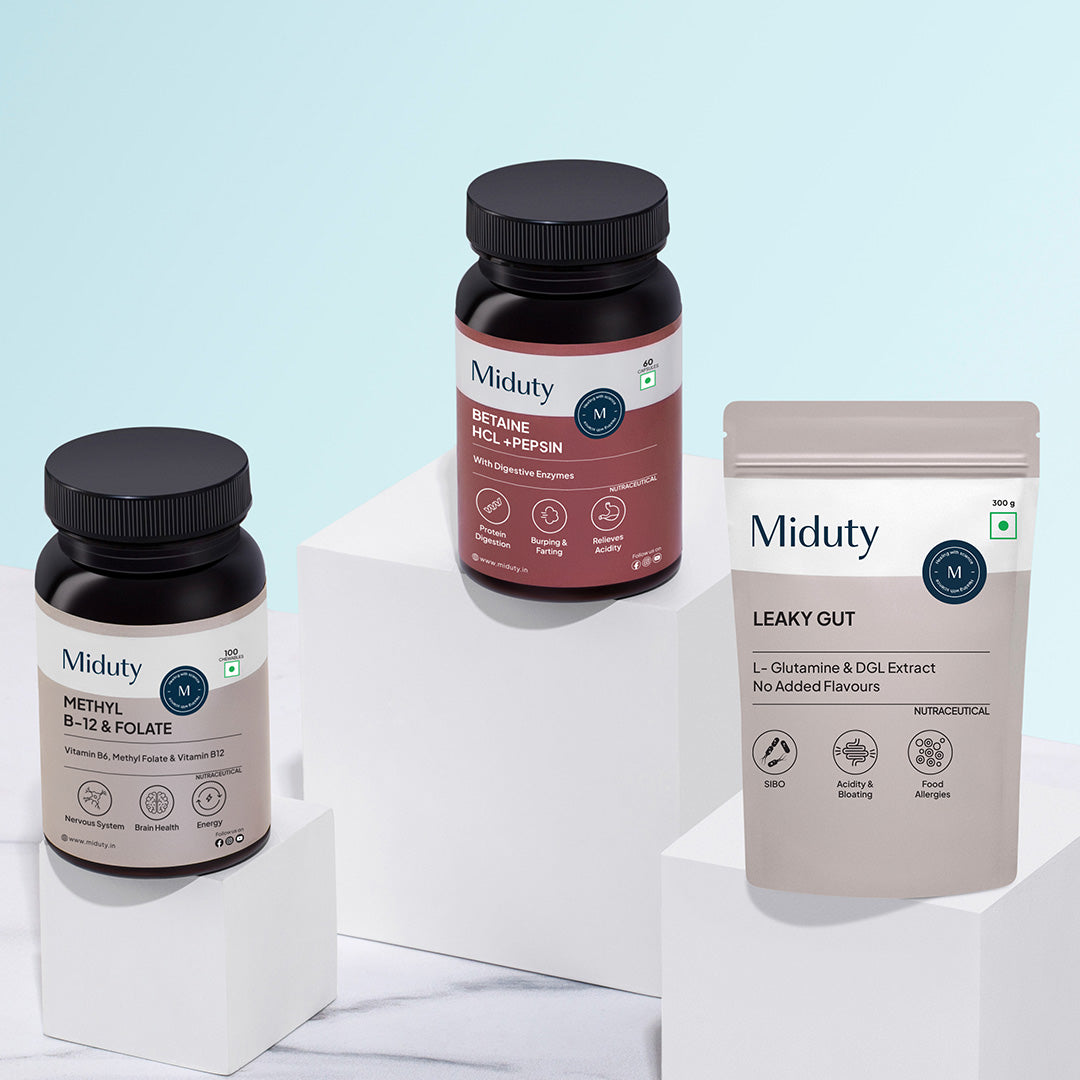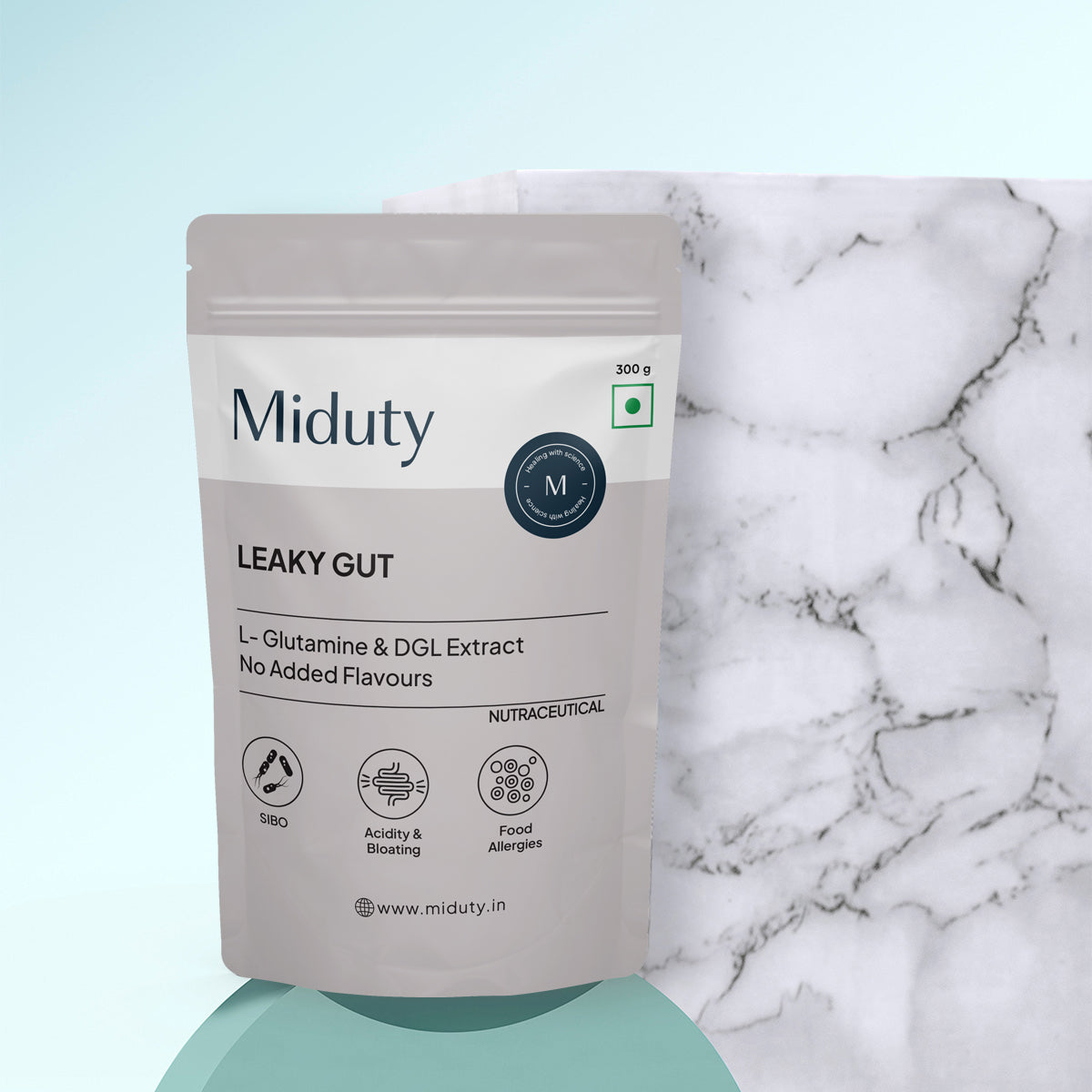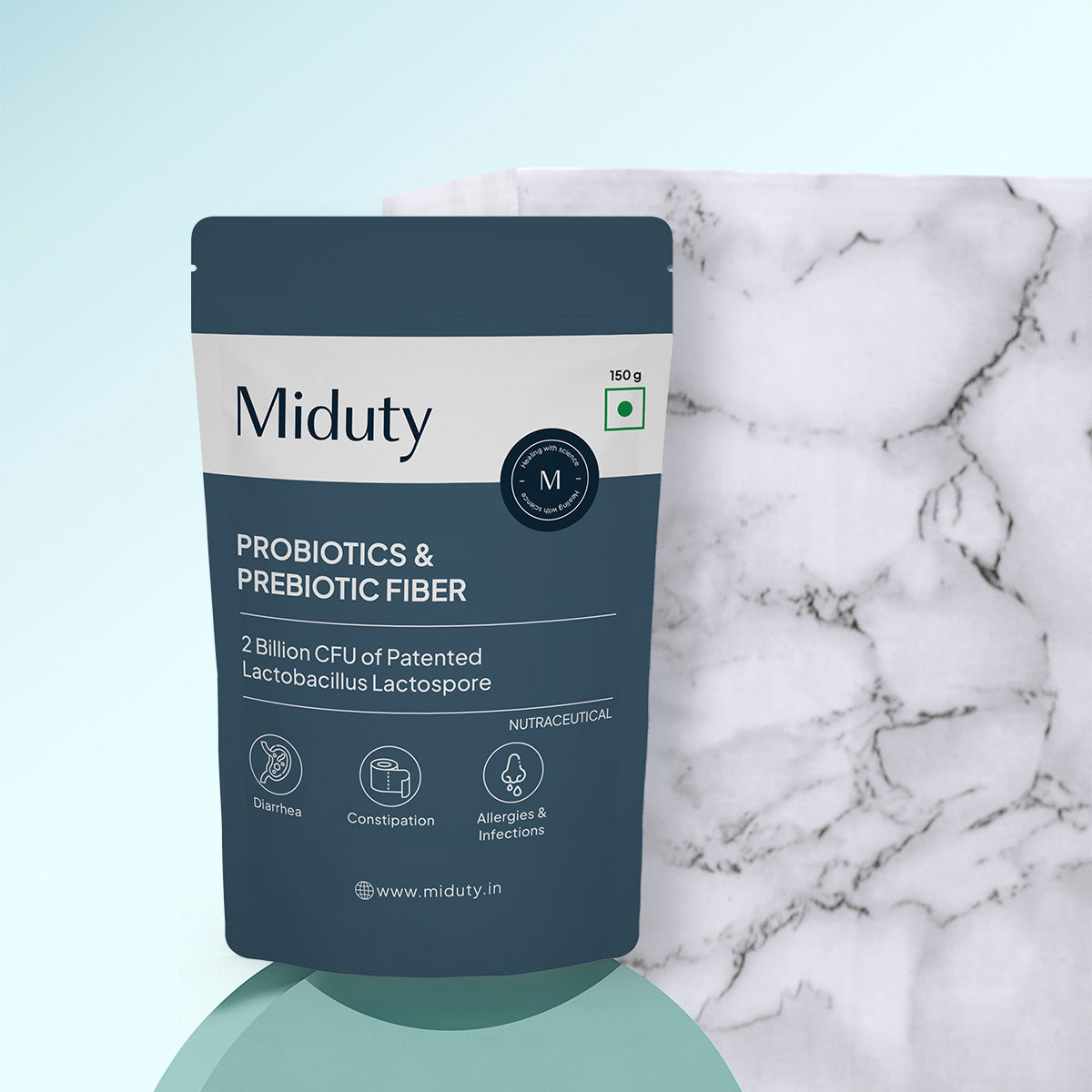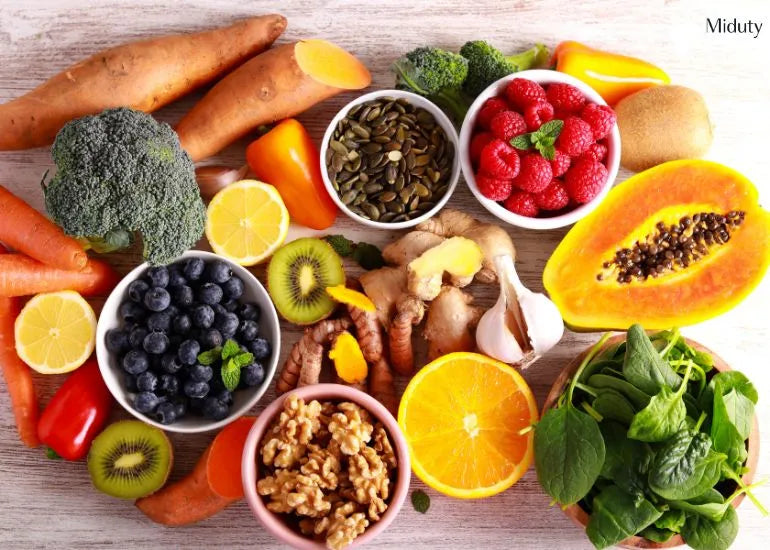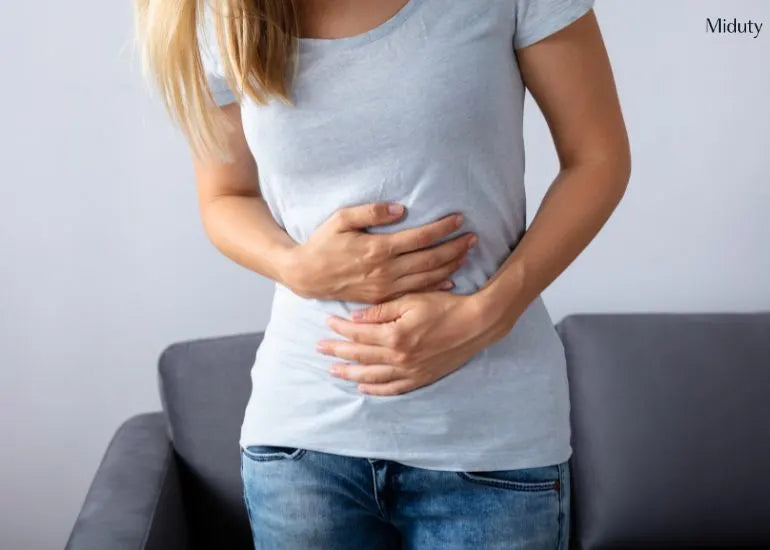
Burning Sensation In Stomach – Causes, Symptoms, and How to Reduce
Key Takeaways
1. Burning in your stomach isn't always "just indigestion" – it could be a sign of acid reflux, ulcers, or infections.
2. Your lifestyle matters – late-night meals, stress, alcohol, and smoking can all worsen stomach burning.
3. Food is both the problem and the solution – spicy, greasy meals can trigger it, while bananas, oats, and yogurt help calm it down.
4. Simple habits go a long way – eating small meals, staying hydrated, and waiting before lying down can bring quick relief.
5. Listen to your body early – ignoring stomach burning may lead to serious complications, but mindful choices can protect your gut health.
What is the Burning Sensation in Stomach?
A burning sensation in the stomach is something almost everyone has experienced at least once. This uncomfortable feeling is not just a casual inconvenience it could be a signal from your body that something deeper is going on. Many people brush it off as "just indigestion," but recurring or severe burning is not something to ignore.
So, what exactly is this burning? Simply put, it's an irritation inside your stomach or upper abdomen that can be caused by excess stomach acid, inflammation, infections, or even stress. The discomfort can range from mild warmth to intense pain that interferes with daily life.
You shouldn’t ignore a burning sensation in stomach because it can be an early warning sign of serious digestive problems. Sometimes it’s just the result of overeating or eating spicy food, but other times, it may point to chronic conditions like acid reflux, gastritis, or ulcers.[1]
Let's explore what could be the causes of burning sensation in the stomach, understand the possible reasons for burning sensation in the stomach, and explore practical solutions on how to reduce burning sensation in the stomach.
Causes of Burning Sensation in Stomach
Understanding the causes of burning sensation in stomach is the first step toward relief. Some of the most common causes include:
1. Acid Reflux and GERD
One of the top causes is acid reflux; when stomach acid travels back up into the esophagus. If this happens often, it turns into GERD (Gastroesophageal Reflux Disease). This acid doesn't belong in your food pipe, so when it rises, it causes irritation and a burning feeling, often called "heartburn." People with GERD may also feel a sour taste in their mouth, persistent cough, or chest pain.
2. Gastritis and Stomach Infections
Gastritis is when the stomach lining gets inflamed. This can be triggered by bacteria like H. pylori, alcohol, or even long-term use of painkillers. When the protective lining weakens, acid irritates the stomach walls, leading to burning pain. Infections also play a role bacteria or viruses can attack the digestive tract and create intense discomfort.
3. Peptic Ulcers
An ulcer is an open sore inside the stomach or small intestine. It gets irritated every time acid or certain foods touch it. The pain often feels like burning that worsens on an empty stomach. If untreated, ulcers can lead to bleeding or more serious complications.
4. Food Intolerances and Spicy Foods
Spicy foods, oily meals, or ingredients you're intolerant to (like lactose or gluten) can irritate your stomach. For some, even coffee or alcohol can trigger a burning sensation. If you notice it happens after specific meals, your diet may be the reason for the burning sensation in your stomach.
5. Stress and Anxiety
Your mind and stomach are more connected than you might think. Stress and anxiety don't just affect your mood—they directly influence digestion. When stressed, your body produces extra acid, slows digestion, and increases sensitivity in the stomach lining. This can lead to burning sensations, bloating, and indigestion.
6. Gallstones and Liver Issues
Sometimes, stomach burning has nothing to do with the stomach itself. Problems in nearby organs like the gallbladder or liver can radiate pain and burning into the abdominal area. Gallstones, for example, block bile flow, causing discomfort that can mimic stomach issues.
7. Medications and Overuse of Painkillers
Medications like ibuprofen, aspirin, and certain antibiotics can be harsh on the stomach. Taking them regularly or on an empty stomach can damage the protective lining, causing burning and even ulcers.
Lifestyle and Dietary Reasons for Burning Sensation
While the above are medical causes, here are some lifestyle and dietary reasons for burning sensation in the stomach that can make the problem worse:
- Eating too late at night and immediately lying down.
- Consuming excessive caffeine, alcohol, or carbonated drinks.
- Skipping meals or eating irregularly.
- Smoking, which weakens the lower esophageal sphincter and allows acid reflux.
- Excessive consumption of fatty, fried, or spicy food.
These reasons, combined with existing digestive issues, can intensify stomach discomfort.
How to Reduce Burning Sensation in Stomach
If you often wonder how to reduce burning sensation in stomach, here are some effective home remedies and lifestyle changes that can bring relief:
1. Adjust Your Diet
- Avoid spicy, greasy, and acidic foods.
- Eat smaller, more frequent meals instead of large ones.
- Include soothing foods like bananas, oats, yogurt, and ginger.
- Add fiber-rich foods (like whole grains, vegetables, and fruits) to improve digestion.
- Limit citrus fruits, tomatoes, and pickles, as they may worsen acidity.
2. Stay Hydrated
- Drink plenty of water throughout the day.
- Coconut water or herbal teas (like chamomile or ginger tea) may help soothe the stomach.
- Warm water after meals can improve digestion.
- Avoid drinking too much water during meals as it can dilute stomach acids.
3. Practice Stress Management
- Try yoga, meditation, or deep breathing to control stress-induced acidity.
- Regular exercise like walking or stretching helps reduce tension.
- Ensure 7–8 hours of quality sleep daily to balance stress and digestion.
4. Avoid Trigger Habits
- Quit smoking and reduce alcohol intake.
- Limit coffee, tea, and carbonated drinks.
- Avoid chewing gum frequently, as it can increase swallowed air and bloating.
- Don't wear very tight clothing, which can put pressure on the stomach.
5. Maintain a Healthy Lifestyle
- Do not lie down immediately after meals; wait at least 2–3 hours.
- Elevate your head slightly while sleeping to reduce acid reflux.
- Maintain a healthy weight to ease pressure on the stomach.
- Practice mindful eating, eat slowly, chew well, and avoid rushing meals.
- Keep a food diary to identify which foods trigger your stomach burning.
6. Over-the-Counter Relief
- Antacids or acid-reducing medications may help temporarily, but they shouldn't replace medical advice if symptoms persist.
- Probiotics (in supplement or food form like curd/kefir) may support better gut health.
7. Natural Remedies That Help
- Drink a glass of cold milk (without added sugar) to neutralize acid.
- Chew a few basil leaves or fennel seeds after meals to ease digestion.
- Aloe vera juice in moderation may soothe stomach lining irritation.
- Honey with warm water can reduce acidity and calm irritation.
Foods That Help with Burning Sensation in Stomach
Diet plays a huge role in both causing and relieving stomach burning. Knowing what to eat and what to avoid is essential for long-term relief.
Best Foods to Eat
Some foods naturally soothe the stomach and reduce acid irritation. These include:
- Bananas and apples (gentle on the stomach)
- Oatmeal and whole grains (absorb stomach acid)
- Ginger and chamomile (natural anti-inflammatory)
- Yogurt and kefir (good probiotics for digestion)
- Leafy greens and boiled vegetables (light and easy to digest)
Adding these foods to your daily diet can help reduce episodes of burning.
Foods to Avoid
On the flip side, certain foods can worsen your symptoms. These include:
- Spicy curries and hot sauces
- Fried and greasy fast food
- Coffee, alcohol, and carbonated drinks
- Citrus fruits and tomato-based dishes
- Chocolate and peppermint (they relax the valve between stomach and esophagus)
Supplements that helps in reducing Burning Sensation in Stomach
Conclusion
A burning sensation in the stomach can be caused by something as simple as eating spicy food or as serious as an ulcer or infection. The causes of burning sensation in the stomach range from acid reflux and gastritis to stress and food intolerances. The good news is that with the right approach dietary changes, natural remedies, stress management, and, when needed, medical treatment you can find lasting relief.
If ignored, stomach burning can lead to complications like ulcers, bleeding, or even cancer in rare cases. That's why it's important to pay attention to your body's signals. By understanding the reason for the burning sensation in the stomach and learning how to reduce the burning sensation in the stomach, you can take charge of your digestive health and live more comfortably.
FAQ's on Burning Sensation in Stomach -
Q1. How do I stop the burning in my stomach?
To stop burning in your stomach, avoid spicy, acidic, and greasy foods, and eat smaller, more frequent meals. Drinking water, herbal teas like chamomile or ginger, and consuming soothing foods like bananas and oats can help.
Q2. Why do I have burning sensations in my stomach?
Burning sensations in the stomach are often caused by excess stomach acid, gastritis, or acid reflux. Other factors include spicy or fatty foods, stress, certain medications, or infections like H. pylori. Identifying and managing these triggers can help reduce discomfort, but persistent symptoms should be checked by a doctor.
Q3. Does drinking water help stomach burning?
Yes, drinking water can help relieve stomach burning by diluting stomach acid and washing it down the esophagus, offering temporary relief. It also supports digestion, promotes gastric emptying, and helps keep the digestive tract healthy, which can reduce acid buildup.
Q4. Is curd good for stomach burning?
Yes, curd is good for stomach burning as its alkaline nature helps neutralize excess stomach acid, providing quick relief. It also contains probiotics that support healthy digestion, improve gut flora, and have a soothing effect on the stomach lining.
Q5. What to eat while stomach burning?
When experiencing stomach burning, eat bland, easily digestible foods like bananas, oats, rice, and steamed vegetables. Yogurt and other probiotic-rich foods can help soothe the stomach and support digestion. Avoid spicy, fatty, or acidic foods to prevent further irritation.
References
| Sr. No. | Reference Links |
| 1. | Gastroesophageal Reflux Disease (GERD) |


